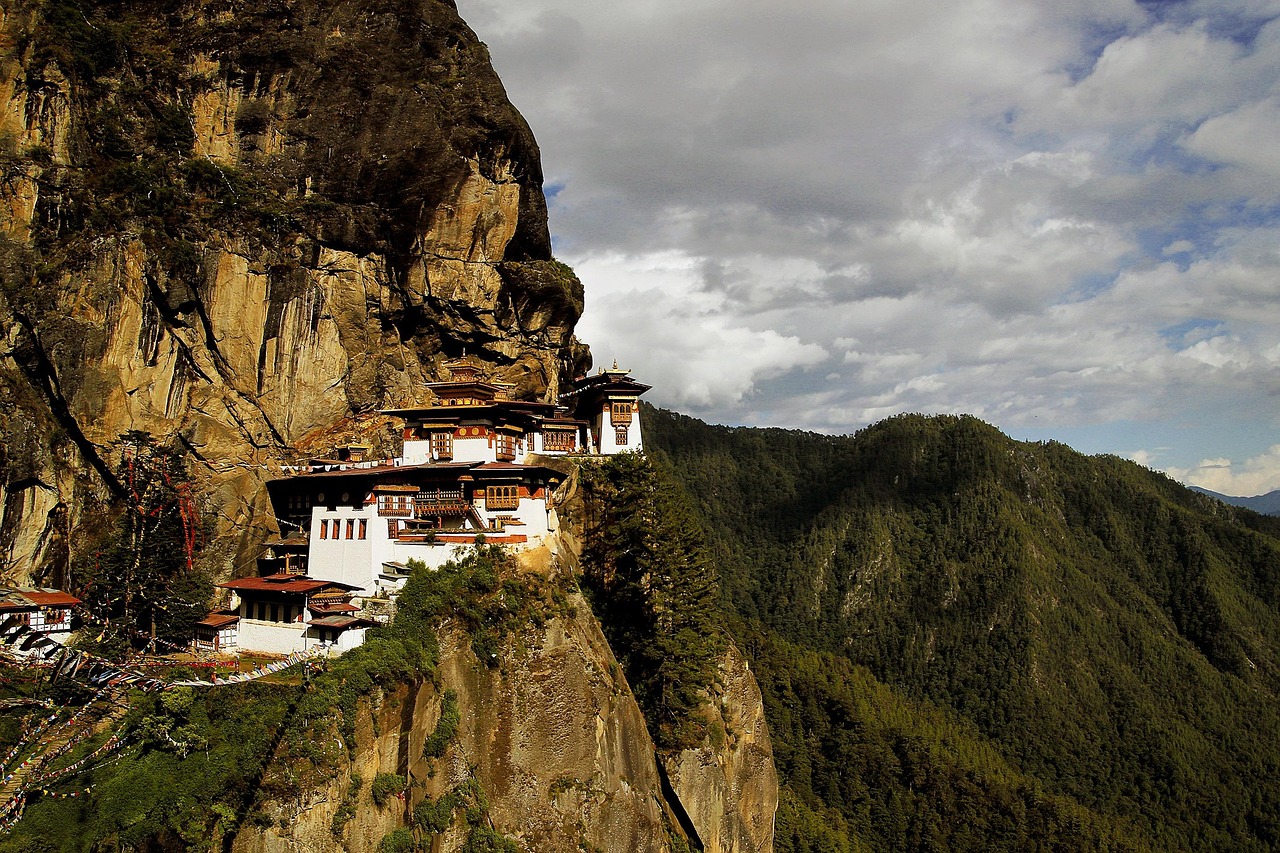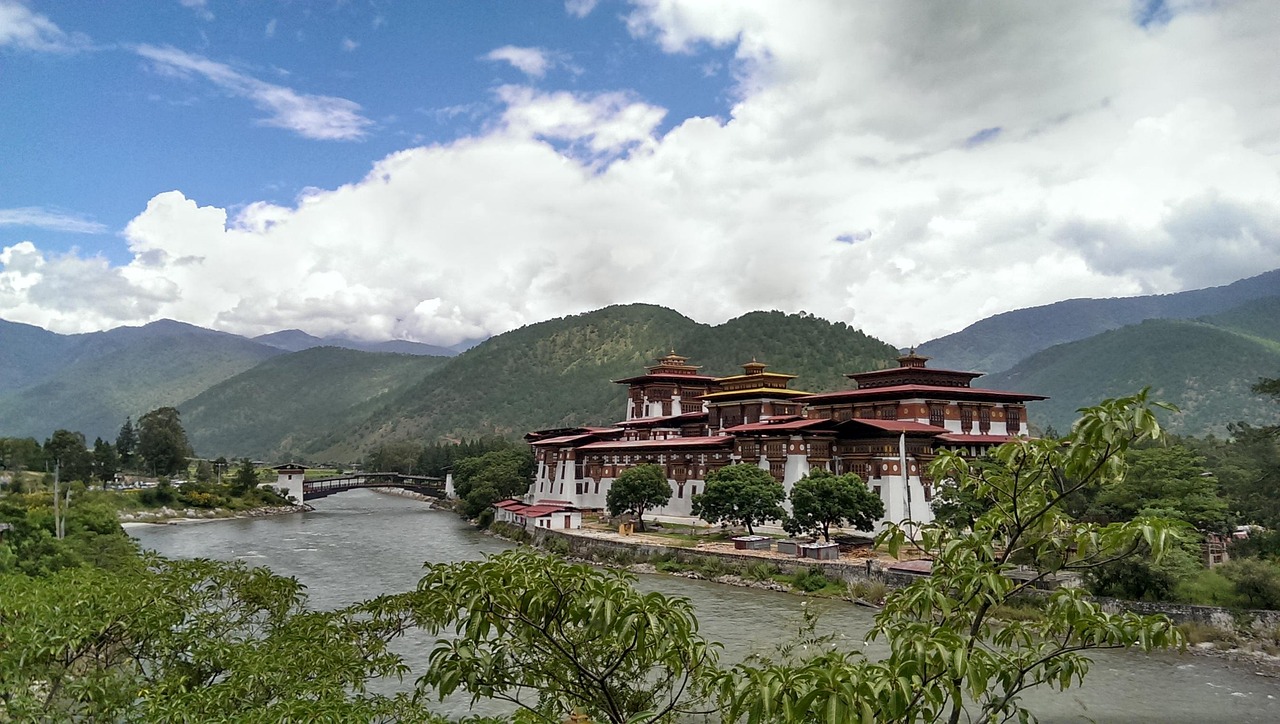Eco-Travel in Bhutan: The Last Shangri-La
Sustainable travel insights and guidance
📅 March 15, 2024
⏱️ 8 min read
🏷️ Eco Destinations
Bhutan, the "Land of the Thunder Dragon," stands as a unique model of sustainable tourism and environmental protection. With its commitment to Gross National Happiness, carbon-negative status, and strict tourism policies, Bhutan offers travelers an opportunity to experience a truly sustainable approach to tourism and environmental protection.
🌿 Bhutan's Environmental Leadership
Bhutan is the world's only carbon-negative country, absorbing more CO2 than it produces. The country's commitment to environmental protection and sustainable development makes it a model for sustainable tourism worldwide.
 Bhutan
Bhutan
🌍 National Parks and Protected Areas
Bhutan's extensive network of protected areas offers diverse ecosystems and wildlife viewing opportunities for eco-tourists.
Jigme Dorji National Park: Bhutan's largest national park, home to diverse wildlife including snow leopards and red pandas.
Royal Manas National Park: A UNESCO World Heritage site featuring diverse ecosystems and wildlife viewing opportunities.
Phrumsengla National Park: Home to diverse bird species and unique alpine ecosystems.
Bumdeling Wildlife Sanctuary: A protected area featuring diverse wildlife and unique ecosystems.
🏨 Eco-Lodges and Sustainable Accommodations
Bhutan offers world-class eco-lodges and sustainable accommodations that combine luxury with environmental responsibility.
Eco Retreats: Stay in eco-lodges that use renewable energy, sustainable materials, and support local communities.
Farm Stays: Experience sustainable agriculture and rural life through farm stay accommodations.
Wilderness Lodges: Stay in remote wilderness lodges that offer unique access to pristine natural areas.
Cultural Homestays: Experience local culture and traditions through homestay accommodations.
🐧 Wildlife Conservation and Viewing
Bhutan's unique wildlife and conservation efforts make it a world-class destination for wildlife viewing and conservation education.
Snow Leopard Viewing: Experience responsible snow leopard viewing in their natural habitat.
Bird Watching: Bhutan is home to many unique bird species, including the endangered black-necked crane.
Red Panda Viewing: Experience responsible red panda viewing in their natural habitat.
Conservation Volunteering: Participate in conservation volunteer programs that support wildlife protection.
🌱 Sustainable Tourism Practices
Bhutan's tourism industry follows strict sustainability standards and best practices for environmental protection.
High Value, Low Impact: Bhutan's tourism policy focuses on high-value, low-impact tourism that benefits local communities.
Local Sourcing: Choose businesses that source locally and support local communities.
Waste Reduction: Support businesses that minimize waste and use sustainable packaging and practices.
Environmental Education: Participate in educational programs that teach about conservation and sustainability.
🌿 Adventure Activities
Bhutan offers a wide range of adventure activities that are conducted in an environmentally responsible manner.
Trekking: Explore Bhutan's extensive network of trekking trails that showcase diverse landscapes.
Cycling Tours: Explore Bhutan's landscapes by bike on dedicated cycling routes and trails.
Wildlife Tours: Join guided wildlife tours that emphasize conservation and responsible viewing practices.
Cultural Tours: Experience Bhutan's unique culture and traditions through guided cultural tours.
 Bhutan
Bhutan
🌍 Climate and Best Times to Visit
Bhutan's temperate climate offers year-round opportunities for sustainable travel, with different seasons offering unique experiences.
Spring (March-May): Best weather for outdoor activities and wildlife viewing, with beautiful spring flowers.
Summer (June-August): Monsoon season with lush vegetation and fewer crowds.
Autumn (September-November): Clear skies and mild weather, ideal for trekking and outdoor activities.
Winter (December-February): Clear skies and unique winter landscapes, with shorter daylight hours.
💰 Planning Your Bhutan Eco-Tourism Trip
Careful planning ensures you make the most of your Bhutan eco-tourism experience while supporting sustainability.
Itinerary Planning: Plan your itinerary to minimize travel between destinations and maximize time in nature.
Accommodation Selection: Choose certified eco-lodges and sustainable accommodations for your stay.
Tour Selection: Select tours and activities that support conservation and local communities.
Transportation: Use public transportation, cycling, or walking when possible to minimize your carbon footprint.
🌱 Supporting Conservation Efforts
Your visit to Bhutan can directly support conservation efforts and local communities through responsible tourism practices.
Conservation Donations: Support conservation organizations and national parks through donations and entrance fees.
Local Community Support: Choose locally-owned businesses and community-based tourism initiatives.
Volunteer Opportunities: Participate in volunteer programs that support conservation and community development.
Educational Programs: Participate in educational programs that teach about conservation and sustainability.
🌍 The Future of Sustainable Travel in Bhutan
Bhutan's commitment to sustainable tourism demonstrates how environmental protection and economic development can work together to create tourism that benefits both visitors and local communities. As the country continues to lead in conservation and sustainability, it offers an inspiring example for other destinations worldwide.
Key Benefits:
- Conservation Impact: Direct support for wildlife conservation and habitat protection
- Community Benefits: Economic benefits for local communities through sustainable tourism
- Educational Value: Opportunities to learn about conservation and sustainability
- Unique Experiences: Access to pristine natural areas and diverse wildlife
- Environmental Protection: Tourism that supports rather than harms the environment
Remember: Sustainable travel in Bhutan is about more than just visiting beautiful places—it's about supporting conservation efforts, learning about sustainability, and contributing to a model of tourism that protects the environment while benefiting local communities. Every visit is an opportunity to support this remarkable conservation success story.
 Bhutan
Bhutan Bhutan
Bhutan